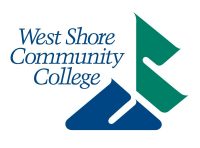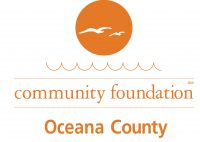High School to College
College is very different from high school and adjusting can be hard for many students. Living on your own or with a roommate, being far from friends and family, the amount of studying- it can be overwhelming!
However, there are so many resources on-campus that can help you succeed!
Below, we will give you some helpful tips on how to start your college career off right.
CAMPUS NETWORKING: WHO’S WHO?
In high school, students often know all of the teachers, principal, and staff in their building. When you go off to college, you are in a whole new environment. The structure of college is quite different from a high school in terms of faculty and staff.
Academic Adviser: Employees of the college or a faculty member who work with students to make sure they are on track to graduate and understand degree requirements.
Dean: A head of a department and/or of a college within a large university (ex. dean of students; dean of the college of medicine). The dean oversees faculty within that department, sets policies, and other administrative tasks.
Career Services: This office helps students find internships or a job when they are about to graduate. They provide career coaching, resume review, job interview practice, and job fairs.
President: Similar to a superintendent, the president oversees the entire college and often works with a cabinet to make financial decisions.
Professor: Similar to a teacher, professors teach classes or conduct research.
Provost: Similar to a school principal, the provost oversees academic affairs and research. They direct the deans of different departments or of smaller colleges within the university.
Registrar Office: This office maintains student grade records and schedules classes. Students can go to the registrar office for their college transcripts.
Resident Assistant (RA): The RA is a student employee who lives in the dorm and assistant students with their living accommodations and ensures rules are being followed.
Student Support Services: This department provides a wide variety of services to help students succeed. This may include peer tutoring, peer mentors (or coaches), TRIO programs, disability services, services to English language learners, and personal or academic counseling. These services vary by each college.
TRIO PROGRAMS
TRIO programs can be found at public and private institutions. TRIO staff support students from varying backgrounds (first generation college students, low income, disabilities). Not all Michigan colleges have TRIO, but there may be staff that assist students in a similar way.
TRIO staff provide academic advising, tutoring, peer coaching, assist with study skills, and personal counseling. TRIO may also put on events for participants and offer exclusive scholarships. TRIO is often limited on the number of participants they can accept. If you qualify, be sure to participate!
Some colleges may offer bridge programs. Bridge programs are designed for incoming freshmen and allow them to move on campus before freshmen orientation. This allows students to become well acquainted with campus and be able to earn a few credits by participating in study skill and career development workshops. Ask your college if they offer a bridge program!
PROFESSIONAL EMAIL TIPS
- Create a professional email that uses your name, initial, and/or significant number.
- Always include a subject
- It can be short and should include the class number.
- Ex. PS 359 – Question about Paper, Job Inquiry, Meeting Next Week
- Always proofread before you click send.
- If this is your first time emailing a person, briefly introduce yourself and explain your connection to them.
- Ex: My name is ____ and I am a freshman at ______ college. I received your contact information from the admissions office.
- Be sure to clearly ask the recipient a question or that you want additional information on a subject.
- Thank the person for their time and sign off using an appropriate farewell.
- Ex: “Thank you”, “Sincerely”, “Best”, “Regards”
RESUMES TIPS
There is no correct or one way to create a resume. However, it is often best to keep it simple. Let someone else look over your resume for advice and to proofread (career service department, a teacher, a friend, or a parent).
- Create your resume as early as possible and update it yearly. When you apply to colleges, you may choose to upload your resume or use it as a checklist when you fill out your applications
- Keep your resume to 1 page
- Include the following on your resume:
- Education history (most recent to oldest) and include any rewards or recognition
- Job history (most recent to oldest) and include short descriptions of your job responsibilities and/or skills
- Extracurricular activities (most recent to oldest) including spots, clubs, and volunteer experiences. List how long you have been involved in the extracurricular activity. If necessary, you may include any titles or honors.
- Skills you have gained
COLLEGE BUDGETING TIPS
- Keep your future self in mind- you’ll want to have a savings account for emergencies or to be able to buy a car.
- Open up a bank account if you do not have one, especially before you go to college!
- Keep track of all of your spending!
- Create a spending spreadsheet or use an app like Mint.
- Only use a credit card if you are confident that you can pay it each month. If you are, check for student credit cards that will limit how much you can charge to that card (local credit unions, banks, and Discover).
- Take your studies seriously, or else you may lose out on scholarships for your next years of study!
- Rent or buy used textbooks; a great site is Chegg.
- Take advantage of student discounts at local restaurants and shops as well at bigger stores/services like Amazon or Spotify.
- The dollar store can be a great place for dorm decorations.
- Once you are a sophomore in college, apply to be a resident assistant (RA) in a dorm! RAs receive free room and board as a benefit of the position.
- Take out cash each month for “fun things” like eating out or buying “wants” so you don’t overcharge your debit or credit cards.
- Even if you can put $1 or $5 in your savings account each month, you are building a cushion for your future self who may really need it!
What Is "College"?
College is all post-secondary education including certificate programs, trade schools, community colleges and 4 year colleges and universities. Learn More





















